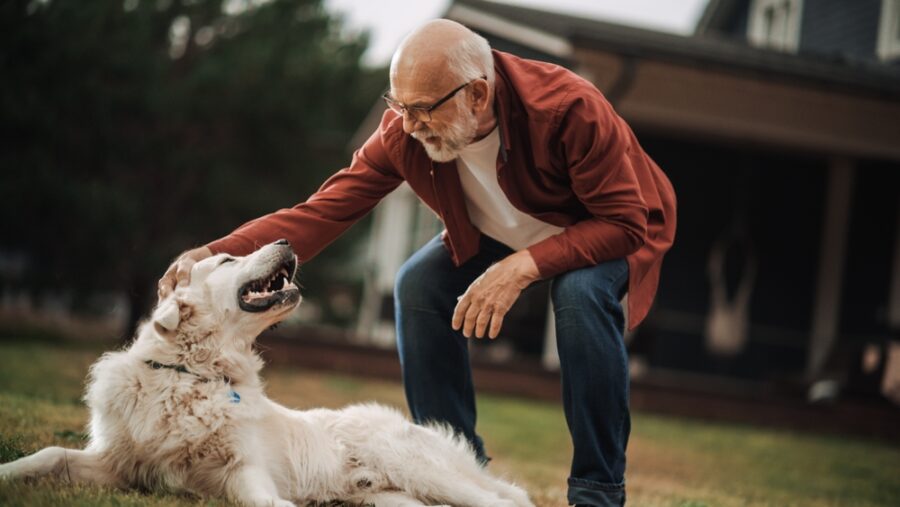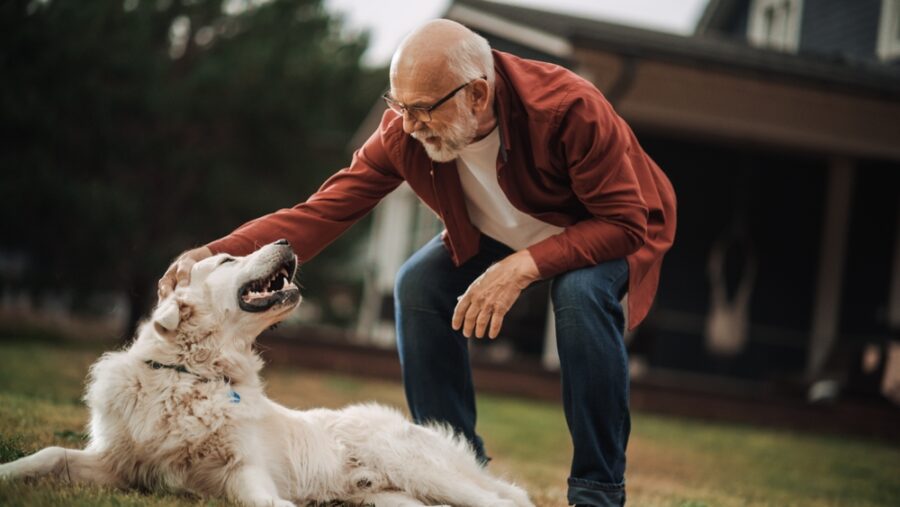
Alzheimer’s disease, a devastating condition that affects millions of seniors, is known for its destructive impact on memory and cognition. However, there is a glimmer of hope for those diagnosed with this disease: Alzheimer’s service dogs. These furry companions are relatively new to the scene, but they are already making a positive difference in the lives of Alzheimer’s patients, offering support, guidance, and a sense of comfort.
HOW DO ALZHEIMER’S SERVICE DOGS HELP?
Providing Reminders to Patients
One remarkable ability of these service dogs is their knack for reminders. They can be trained to assist individuals with memory difficulties in various tasks. For example, they can let a person know when they’ve left the oven on, ensuring safety and preventing accidents. These dogs also possess a keen sense of time, which is incredibly helpful for Alzheimer’s patients who often struggle with time management. They remind their human companions when it’s time to eat, take medications, or even hydrate. Furthermore, a gentle nudge from the dog to brush its coat or wipe its mouth after eating serves as a cue for the person to perform self-care activities, such as combing their hair and washing their face.
Guiding Patients
Unlike guide dogs for the visually impaired, Alzheimer’s service dogs take a different approach to navigation. These specially trained dogs walk ahead of their human companions, leading the way and ensuring they find their path. Using commands like “home,” the patient can prompt the dog to guide them back to safety, even if they’ve taken an unexpected detour. Additionally, a GPS collar allows caregivers to track the pair’s whereabouts and activate a sound signal that prompts the dog to return home. In critical situations, such as agitation or a fall, the dog can bark to attract attention and seek help.
Offering Emotional Calming and Support
Alzheimer’s patients often experience agitation and distress when facing confusion or disorientation. However, Alzheimer’s service dogs are trained to provide behavior interruption, redirecting their human companions’ attention and easing agitation. Simply petting these furry friends can have a calming effect, offering a source of comfort in moments of distress. Additionally, the companionship of a service dog plays a significant role in reducing isolation and loneliness. Taking a morning walk with the dog becomes an interactive experience, as other walkers stop to inquire about the dog’s name or breed. This attention provides the patient with an opportunity to gather their thoughts before responding, as Alzheimer’s can cause difficulties in verbal communication.
THE GIFT OF MEMORY
Here’s a heartfelt account that exemplifies the profound impact dogs can have on individuals with Alzheimer’s:
A woman took her husband to an adult daycare facility to run some errands. Upon her return, she noticed a therapy group visiting with their dogs. Excitedly, she suggested they ask the group if her husband could pet their dogs. To her surprise, one of the volunteers responded, “Oh, we already spent time with Bob. He told me about your dog, its name, and the tricks it knows. We had a pleasant conversation.” Overwhelmed with emotion, the woman tearfully shared, “Our dog passed away 20 years ago. Alzheimer’s has taken so much from Bob, and I worried there was nothing left. But if he remembers our dog, it means somewhere deep inside, he’s still there.”
These heartwarming stories demonstrate the profound impact that Alzheimer’s service dogs can have on patients and their loved ones. These furry companions offer a lifeline of support, helping Alzheimer’s patients maintain their quality of life and find solace in the face of a devastating disease.
To learn more about the benefits of Alzheimer’s service dogs and other topics related to pet care, visit Pet Lovers Diary.
